When it comes to handling online transactions for your business, having reliable and efficient payment processing is non-negotiable. While PayPal is a well-known player in this field, exploring PayPal alternatives can unlock a world of advantages tailored to your specific business needs.
Think of it like this: you wouldn’t stick with the first shop you visit for a crucial business purchase without comparing prices and offerings, right? The same principle applies to payment processing.
Here’s why venturing beyond the familiar can be beneficial and what to consider when evaluating a PayPal alternative:
- Beyond the Fees: While transaction fees are a significant factor, don’t let them be the sole focus. A PayPal alternative might offer competitive transaction rates, capped fees for high-volume sales, or even subscription-based models that could be more cost-effective depending on your sales volume.
- Seamless Integration for Smooth Operations: Imagine a payment processor that integrates seamlessly with your existing online store, accounting software, and preferred business tools. PayPal alternatives often prioritize integration, offering easy-to-use APIs, plugins, or pre-built connections to popular platforms, saving you time and effort on setup and management.
- Cater to a Global Audience: In today’s interconnected world, limiting your customer base to a single payment method is like leaving money on the table. Many PayPal alternatives recognize the need for flexibility, supporting a wider array of payment options. Think beyond traditional credit cards to embrace digital wallets, mobile payments, and even direct bank transfers, making transactions smooth and convenient for a global clientele.
- Security First, Always: When it comes to financial transactions, security is paramount. PayPal alternatives prioritize the safety of your hard-earned money and your customers’ sensitive data. Look for robust security features like data encryption, fraud detection mechanisms, and compliance with industry-standard security protocols like PCI DSS.
- Support When You Need It Most: Technical hiccups or transaction disputes can be frustrating. A reliable PayPal alternative will have your back with dedicated customer support. Look for responsive channels like phone, email, or live chat, ensuring you can quickly connect with knowledgeable representatives who can efficiently address your concerns.
- Control Your Cash Flow: Understanding your cash flow is crucial for any business. When exploring PayPal alternatives, inquire about payout schedules, available payout methods (bank transfer, debit card, etc.), and any potential holding periods or reserve requirements. Having clear insights into these aspects allows for better financial planning and management.
- Unlock Added Value: Beyond the essentials, PayPal alternatives often come equipped with valuable features that can streamline your operations and enhance customer satisfaction. Think recurring billing for subscription services, integrated invoicing tools for a streamlined billing process, detailed transaction reporting for insightful financial analysis, or even loyalty program integrations to reward repeat customers.
Finding the perfect PayPal alternative is about identifying a payment processing partner that aligns with your unique business goals and priorities. By considering these aspects, you can confidently navigate the landscape of payment processing options and choose a solution that empowers your business to thrive in the ever-evolving digital marketplace.
The 5 Best Paypal Alternatives for Business in 2024
Ready to ditch PayPal? Buckle up as we explore the top options for alternative payment processing solutions for businesses in 2024!
1. Stripe
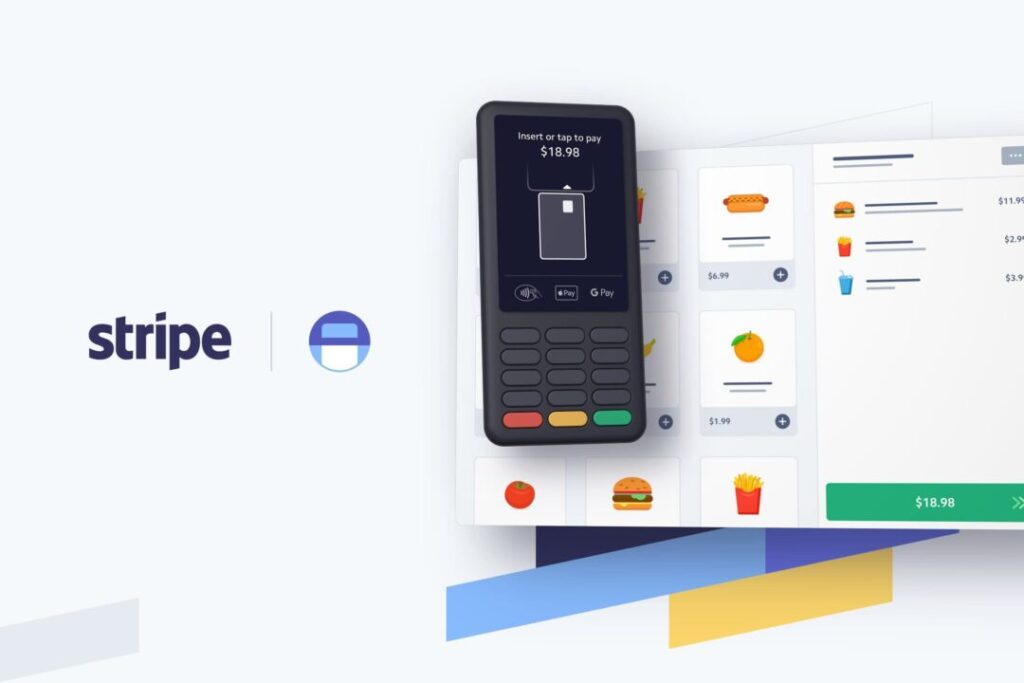
In the ever-evolving landscape of online commerce, a robust and adaptable payment processing system is paramount to success. While PayPal has long been a familiar name in the digital payment sphere, the rise of compelling PayPal alternatives like Stripe has ushered in a new era of possibilities for businesses seeking greater control, flexibility, and streamlined financial operations.
So, what exactly is Stripe, and why is it garnering so much attention as a top PayPal alternative for businesses in 2024? Let’s delve deeper:
Stripe: A Developer-First Approach to Payments
At its core, Stripe is a sophisticated technology company that provides businesses with the tools and infrastructure to accept and manage online payments. Unlike traditional payment gateways, Stripe distinguishes itself with a developer-centric approach, offering a robust suite of APIs (Application Programming Interfaces) that empower businesses to seamlessly integrate payment processing into their websites, mobile apps, and other digital platforms. This level of customization and control is a key differentiator for businesses seeking a tailored payment solution that aligns perfectly with their unique workflows and customer experience goals.
Why Stripe Stands Out as a Top PayPal Alternative
- Developer-Friendly Integration: Stripe’s strength lies in its developer-first philosophy. Its well-documented and flexible APIs empower developers to create highly customized checkout experiences, integrate seamlessly with various platforms, and automate complex payment processes. This level of control is particularly appealing to tech-savvy businesses or those with specific development requirements that might not be readily met by more traditional payment gateways.
- Transparent and Competitive Pricing: Navigating the complexities of payment processing fees can be daunting. Stripe promotes transparency with its straightforward pricing structure, typically charging a flat rate per transaction plus a small percentage fee. This predictable pricing model allows businesses to accurately forecast costs and avoid hidden fees, making it a compelling alternative to PayPal, especially for businesses with high transaction volumes.
- Global Reach and Multi-Currency Support: In today’s interconnected world, catering to a global customer base is essential for growth. Stripe excels in this regard, supporting payments in over 135 currencies and facilitating transactions in more than 40 countries. This extensive reach simplifies international expansion and allows businesses to tap into new markets with ease.
- Robust Security and Fraud Prevention: Security is paramount when handling sensitive financial data. Stripe prioritizes the safety of both businesses and their customers, employing industry-leading security measures such as PCI DSS compliance, two-factor authentication, and advanced fraud detection algorithms. This commitment to security provides peace of mind and fosters trust in an increasingly digital transaction landscape.
- A Wealth of Features and Integrations: Stripe goes beyond basic payment processing, offering a comprehensive suite of features designed to streamline business operations. From recurring billing and subscription management to invoicing tools and detailed financial reporting, Stripe provides the tools businesses need to manage their finances efficiently. Moreover, Stripe seamlessly integrates with a vast ecosystem of third-party platforms, including popular e-commerce platforms, accounting software, and marketing automation tools, further extending its functionality and versatility.
- Dedicated Support for Seamless Operations: Encountering technical issues or requiring assistance with payment processing can be disruptive. Stripe understands the importance of reliable support and offers dedicated channels for businesses to connect with their team of experts. Whether through email, live chat, or comprehensive online documentation, Stripe ensures that businesses have access to the resources they need to resolve issues quickly and efficiently.
Stripe: Empowering Businesses to Thrive in the Digital Age
In essence, Stripe’s appeal as a PayPal alternative stems from its ability to empower businesses with a flexible, secure, and developer-friendly payment processing solution. Its transparent pricing, global reach, and wealth of features make it an ideal choice for businesses of all sizes, from ambitious startups to established enterprises.
While PayPal remains a widely recognized option, Stripe’s innovative approach and commitment to providing businesses with the tools they need to succeed in the rapidly evolving digital landscape have solidified its position as a leading contender in the world of online payment processing.
2. Google Pay
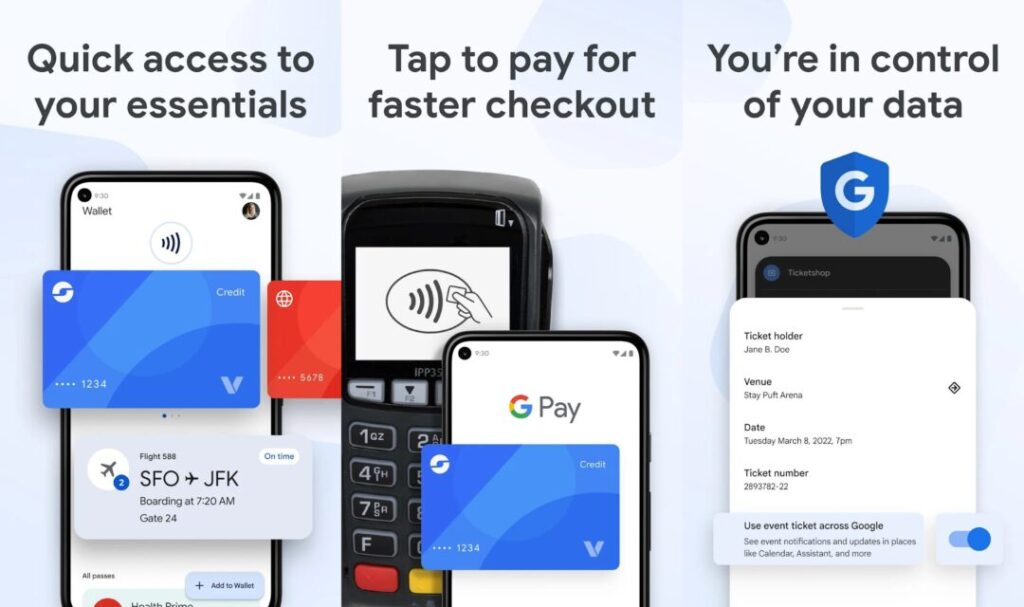
In the fast-paced world of digital payments, businesses are constantly seeking streamlined and customer-centric solutions. While PayPal has long been a familiar name, the rise of innovative PayPal alternatives like Google Pay is transforming the way businesses handle transactions, offering a seamless and secure experience for both merchants and consumers.
But what exactly is Google Pay, and why is it gaining traction as a top PayPal alternative for businesses in 2024? Let’s delve into the details:
Google Pay: Beyond a Digital Wallet
At its core, Google Pay is more than just a digital wallet; it’s a comprehensive platform that simplifies online and in-person transactions, making it incredibly convenient for consumers and businesses alike. For consumers, it provides a secure way to store payment information and make purchases with a simple tap or click. For businesses, it offers a powerful tool to streamline checkout processes, enhance security, and tap into a vast user base.
Why Google Pay is a Compelling PayPal Alternative
- Vast User Base and Global Reach: Google Pay benefits from the immense popularity of the Google ecosystem. With billions of active Android users worldwide, Google Pay boasts a vast and readily accessible customer base. This widespread adoption translates into a seamless experience for consumers, who can make purchases using their preferred payment methods already stored within their Google accounts, and for businesses, it represents a significant opportunity to tap into a massive pool of potential customers.
- Seamless Integration and User Experience: One of Google Pay’s key strengths lies in its seamless integration with various platforms and devices. Whether customers are shopping online, in-app, or at a physical store, Google Pay offers a consistent and user-friendly experience. This ease of use encourages adoption and reduces friction at the point of sale, leading to higher conversion rates and increased customer satisfaction.
- Enhanced Security and Fraud Prevention: Security is paramount when it comes to financial transactions, and Google Pay prioritizes the safety of both businesses and their customers. Utilizing industry-leading security protocols, such as tokenization and biometric authentication, Google Pay safeguards sensitive payment information, reducing the risk of fraud and data breaches. This commitment to security fosters trust and provides peace of mind for all parties involved.
- Competitive Transaction Fees and Transparent Pricing: For businesses, transaction fees can significantly impact the bottom line. Google Pay offers competitive transaction rates, often lower than traditional payment processors, making it an attractive alternative to PayPal, especially for businesses with high transaction volumes. Moreover, Google Pay maintains a transparent pricing structure, ensuring businesses can easily understand the costs associated with each transaction.
- Loyalty Programs and Value-Added Services: Beyond basic payment processing, Google Pay provides businesses with opportunities to enhance customer engagement and loyalty. Integrating loyalty programs, offering personalized promotions, and providing a seamless way for customers to redeem rewards directly within the Google Pay ecosystem can foster stronger customer relationships and drive repeat business.
- Constant Innovation and Expansion: As part of the ever-evolving Google ecosystem, Google Pay benefits from continuous innovation and expansion. Google consistently introduces new features, expands its reach into new markets, and partners with financial institutions and businesses to enhance its offerings. This commitment to innovation ensures that Google Pay remains at the forefront of the digital payment landscape, providing businesses with a future-proof solution that adapts to the changing needs of consumers.
Google Pay: A Payment Solution for the Future of Commerce
In conclusion, Google Pay’s appeal as a PayPal alternative stems from its user-friendly interface, vast reach, robust security measures, and commitment to innovation. By embracing Google Pay, businesses can streamline their payment processes, enhance security, tap into a massive user base, and provide a seamless and rewarding experience for their customers. As the digital payment landscape continues to evolve, Google Pay is well-positioned to shape the future of commerce, empowering businesses to thrive in an increasingly connected world.
3. Shopify Payments
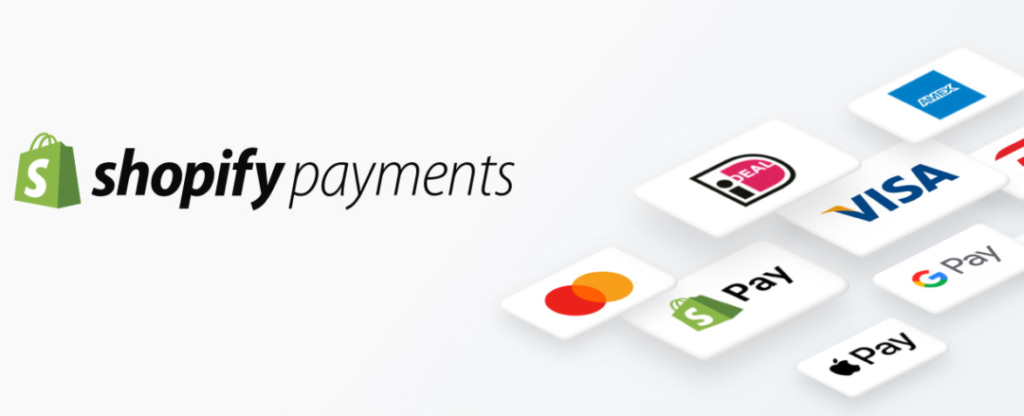
For businesses venturing into the bustling world of e-commerce, a reliable and efficient payment processing system is non-negotiable. While PayPal has long been a go-to solution, the emergence of robust PayPal alternatives like Shopify Payments has provided merchants with compelling options to elevate their online businesses.
So, what exactly makes Shopify Payments a top contender, and why should e-commerce businesses consider it as a PayPal alternative in 2024? Let’s dive in:
Shopify Payments: Streamlining Commerce Within the Shopify Ecosystem
Shopify Payments is more than just a payment gateway; it’s a fully integrated payment processing solution built directly into the Shopify platform. This native integration offers e-commerce businesses a streamlined and unified experience for managing their online stores and financial transactions, all within a single, user-friendly dashboard.
Why Shopify Payments Stands Out as a Top PayPal Alternative
- Seamless Integration and Simplified Setup: One of the most significant advantages of Shopify Payments is its seamless integration with the Shopify ecosystem. Setting up Shopify Payments is remarkably straightforward, requiring no third-party accounts or complex integrations. This native integration eliminates the need for customers to leave the Shopify environment to complete their purchases, resulting in a smoother checkout experience and potentially higher conversion rates.
- Transparent and Competitive Pricing: Navigating the complexities of payment processing fees can be daunting for businesses. Shopify Payments offers transparent and competitive pricing plans, typically charging a flat rate per transaction plus a percentage fee, which can be more cost-effective than PayPal, especially for businesses with high sales volumes or those using higher-tier Shopify plans.
- Enhanced Security and Fraud Prevention: Security is paramount when handling sensitive financial information. As a PCI Level 1 compliant payment provider, Shopify Payments prioritizes the security of both businesses and their customers. Features like fraud analysis tools, address verification, and 3D secure technology help mitigate fraudulent activities and protect sensitive data, providing peace of mind for both merchants and shoppers.
- Access to Shopify’s Powerful Features: By choosing Shopify Payments, businesses gain access to a suite of powerful features offered by the Shopify platform. These include abandoned cart recovery, which helps recapture lost sales, customizable shipping options to cater to diverse customer needs, and multi-currency support to expand into global markets.
- Dedicated Customer Support: Encountering technical difficulties or needing assistance with payment processing can be disruptive. Shopify Payments benefits from Shopify’s renowned customer support team, available 24/7 via phone, email, or live chat. This dedicated support ensures that businesses can quickly resolve issues and receive timely assistance whenever needed.
- Streamlined Financial Management: Shopify Payments simplifies financial management by providing businesses with a centralized location to track sales, refunds, payouts, and chargebacks. This consolidated view of financial data streamlines accounting processes and provides valuable insights into business performance.
Shopify Payments: A Natural Choice for Shopify Merchants
While PayPal remains a widely recognized option, Shopify Payments presents a compelling alternative, particularly for businesses already operating within the Shopify ecosystem. Its seamless integration, transparent pricing, enhanced security features, and access to Shopify’s powerful suite of tools make it a natural choice for e-commerce businesses looking to streamline their operations and enhance their customers’ shopping experience.
As the e-commerce landscape continues to evolve, Shopify Payments is well-positioned to empower businesses with the tools they need to succeed in the competitive world of online retail.
4. Payoneer
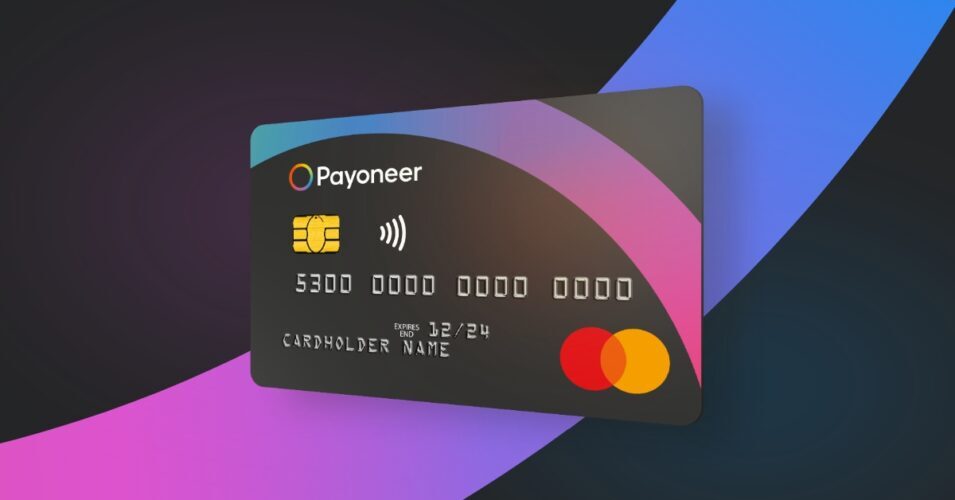
In today’s interconnected global marketplace, businesses need flexible and reliable payment solutions to navigate the complexities of international transactions. While PayPal has been a familiar name, the rise of robust PayPal alternatives like Payoneer is reshaping how businesses, particularly those operating globally, manage their finances.
So, what sets Payoneer apart, and why is it gaining traction as a top PayPal alternative for businesses in 2024? Let’s explore:
Payoneer: Bridging the Gap in Global Payments
Payoneer specializes in facilitating cross-border payments, making it a go-to solution for businesses engaged in international commerce, freelancing, or online marketplaces. It provides a platform for businesses to send and receive payments globally, offering a range of features tailored to the needs of a globally distributed workforce.
Why Payoneer is a Compelling PayPal Alternative
- Focus on International Transactions: Payoneer’s core strength lies in its specialization in cross-border payments. It offers competitive exchange rates and lower fees for international transactions compared to some traditional payment methods, making it a cost-effective choice for businesses operating across borders.
- Multi-Currency Accounts and Global Reach: Payoneer allows businesses to create and manage multi-currency accounts, enabling them to receive payments in various currencies like local bank accounts. This feature simplifies international transactions, reduces foreign exchange fees, and provides greater flexibility for businesses operating in multiple markets.
- Seamless Integration with Marketplaces and Networks: Payoneer has strategically partnered with numerous global marketplaces, freelance platforms, and affiliate networks. This integration allows businesses to receive payments directly from these platforms seamlessly, streamlining their earnings and expanding their reach to a broader customer base.
- Flexible Payment Solutions: Payoneer offers a range of payment solutions, including direct bank transfers, prepaid Mastercard cards, and local bank withdrawals in multiple currencies. This flexibility caters to the diverse needs of businesses and their recipients, ensuring convenient and accessible payment methods worldwide.
- Enhanced Security and Compliance: Payoneer prioritizes the security of its platform and customer funds. It employs robust security measures, including two-factor authentication, fraud detection systems, and compliance with international financial regulations, providing businesses and their clients with peace of mind.
- Dedicated Support for Global Businesses: Navigating the complexities of international payments often requires specialized support. Payoneer offers dedicated customer support teams with expertise in cross-border transactions, providing businesses with the guidance and assistance they need to navigate the intricacies of global commerce.
Payoneer: Empowering Businesses in the Global Marketplace
While PayPal remains a widely recognized option, Payoneer’s focus on international payments, multi-currency capabilities, and seamless integration with global marketplaces make it a powerful PayPal alternative, especially for businesses engaged in cross-border transactions.
As the world becomes increasingly interconnected, Payoneer empowers businesses to navigate the complexities of global commerce with ease and efficiency, providing a reliable and cost-effective solution for managing international payments and expanding their reach in the global marketplace.
5. Square
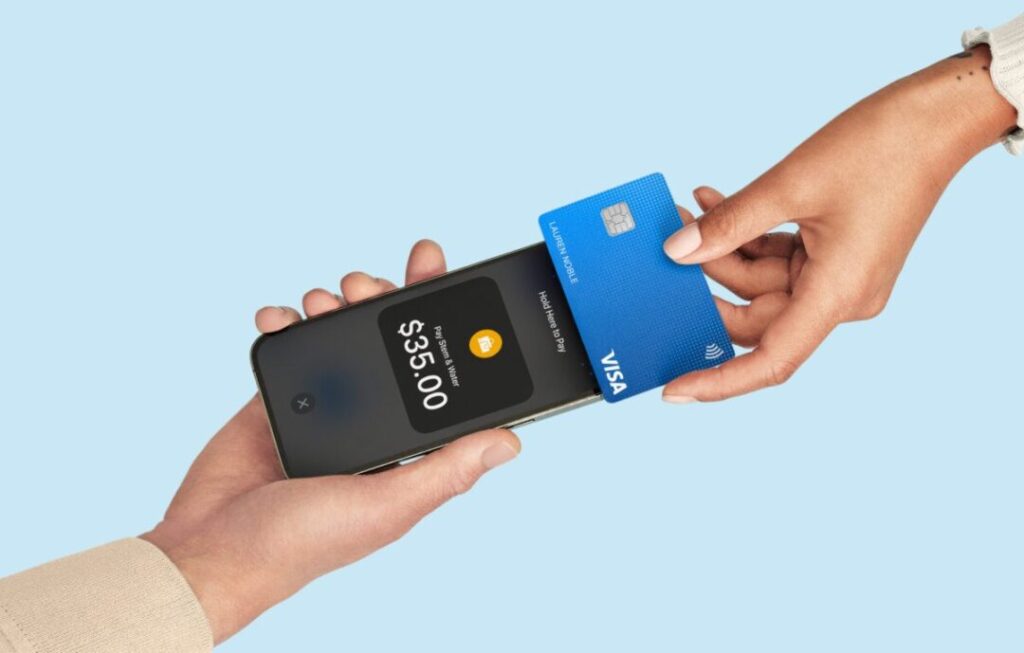
The digital payments game is constantly evolving, and businesses need agile and reliable solutions to keep pace. While PayPal has been a mainstay, robust PayPal alternatives like Square are changing how businesses, especially small and medium-sized enterprises (SMEs), manage transactions and operations.
So, what sets Square apart and why is it becoming the go-to PayPal competitor for businesses in 2024? Let’s unpack the reasons:
Square: Beyond Payments, a Business Powerhouse
Square, once known simply as “Square Payments,” has transformed into a comprehensive platform offering a suite of tools that go far beyond just processing payments. From its intuitive point-of-sale (POS) system to its online payment gateway and even employee management features, Square offers a holistic approach to empower businesses to flourish in today’s competitive environment.
Why Square Reigns Supreme as a PayPal Alternative
- Effortless POS for the Modern Business: A cornerstone of Square’s success is its user-friendly POS system. The Square POS app, available on iOS and Android devices, turns smartphones or tablets into portable POS terminals. This allows businesses to accept payments on-the-go, making it perfect for brick-and-mortar stores, mobile businesses, pop-up shops, and events.
- Seamless Online Payment Integration: Square isn’t limited to in-person transactions. It boasts a robust online payment gateway, enabling businesses to securely accept payments through their websites, social media platforms, or by sending invoices directly. This omnichannel approach provides customers with a flexible and convenient checkout experience, regardless of their shopping journey.
- Transparent and Competitive Fees: Square’s pricing structure is designed for clarity and predictability, a major advantage for businesses. It typically charges a flat fee per swipe or tap, along with a percentage fee. This structure can be particularly cost-effective for businesses with high sales volumes or those processing microtransactions, potentially saving them money compared to PayPal’s fee structure.
- Feature-Rich Ecosystem Fuels Growth: Square’s offerings extend far beyond payment processing. It provides businesses with a suite of integrated tools to manage various aspects of their operations, including inventory management, employee scheduling, payroll services, marketing tools, and even access to business loans. This comprehensive approach allows businesses to streamline operations, free up resources, and focus on growth and customer satisfaction.
- Unwavering Security and Data Protection: With the rise of digital threats, Square prioritizes platform security and the protection of sensitive customer data. It employs industry-leading security measures, including end-to-end encryption, robust fraud detection tools, and compliance with the Payment Card Industry Data Security Standard (PCI DSS). This ensures peace of mind for businesses and their customers during transactions.
- Dedicated Support for Businesses: Technical glitches or payment processing questions can disrupt operations. Square understands this, and provides dedicated customer support channels, including phone, email, and live chat, to assist businesses promptly and efficiently. This commitment to customer service helps businesses resolve issues quickly and minimize downtime.
Square: A Holistic Solution for the Modern Business Landscape
While PayPal remains a familiar name, Square’s comprehensive suite of tools, user-friendly POS system, seamless online payment processing, and unwavering commitment to security make it a compelling alternative to PayPal for businesses of all sizes. As the lines between physical and online commerce continue to blur, Square empowers businesses to adapt to the evolving payments landscape, providing them with the tools and flexibility they need to thrive in today’s competitive market.
Conclusion
In the ever-evolving landscape of online payments, having reliable and efficient PayPal alternatives is crucial for businesses of all sizes. Whether you’re seeking lower transaction fees, enhanced features, or expanded international reach, the options we’ve explored offer compelling advantages to streamline your financial operations.
Remember, the best PayPal alternative for your business ultimately depends on your unique needs and priorities. Carefully weigh the pros and cons of each platform, consider factors like transaction costs, available features, and customer support, and choose the solution that empowers your business to thrive in 2024 and beyond.


